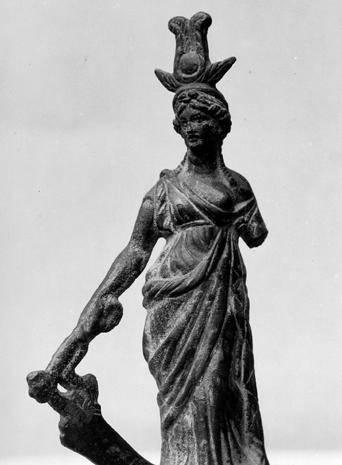
5 minute read
Business
What would the audit industry look like if audit services were structurally separated from non-audit services?
Jeff Beshany
Advertisement
Non-audit, or consultancy, services performed by auditors have grown immensely since government deregulation began in the USA in the late 1970s and in the UK in 1984. Growth for non-audit services was spurred on by the need of businesses in various industries to remain competitive. These businesses turned to the auditors who, through their exposure to various industries, gained a unique understanding of each industry’s dynamics. The experience gained by the auditors provided them with a competitive advantage compared to non-auditing consultancy firms, which the auditors dutifully exploited. Today, most auditing firms earn more revenue from providing non-audit services than they do from providing audit services. While this has been a boon for the auditing industry it has come with heavy criticism. The industry has faced accusations of compromising their ethical responsibilities from performing an audit in a drive to expand their non-audit business, which is a greater source of revenue (Brooks, 2019). It is for this reason that non-audit services have been cited as a major factor when audit fails.
The collapses of Carillion and Patisserie Valerie in 2018 were blamed, in part, on accounting irregularities that were not discovered during those firms’ annual audits. These most recent failures follow in the footsteps of the 2001 collapse of Enron in the United States, whose executives worked hand-in-hand with their auditor Arthur Anderson to defraud customers and drain employees’ pensions, and the financial crisis of 2008, where auditors failed to identify weaknesses in the financials of the banking sector (Sikka, 2009). In the UK alone, the collapse of the subprime mortgage market threatened the existence of British banks, which necessitated an injection of more than £100 billion of taxpayer investment from the government. More recently, the Financial Reporting Council (FRC), the audit industry’s regulatory body, had found UK auditors guilty of not performing quality audits up to 25% of the time (FRC, 2019). The preponderance of these events led to questions by politicians and the media regarding the nature of the audit industry which culminated with the UK government authorizing a comprehensive review of the entire industry in 2018.
Four separate reports, two of which were independent reviews, concluded in December 2019. Taken in total these reviews determined that audit quality, independence, trust, professional scepticism, transparency, and competition, along with many other aspects of audit, are issues that must be addressed and improved. In addition to determining that the industry’s regulatory body, the FRC, is too weak and should be replaced, the UK government recommended an operational split of audit and non-audit services, with the caveat that a full structural split may be necessary in the future if the recommended measures proved ineffective (CMA, 2019). This conclusion by the UK government is ground-breaking because the result advocates for the “break up” of an entire industry which has never occurred in history. The nearest comparisons that could be investigated are monopolies such as Standard Oil and AT&T in the USA, but those examples are
breaking up individual companies within an industry, not breaking up the industry itself. Therefore, a forced breakup of the audit industry between audit and nonaudit units would be monumental and unprecedented.
Furthermore, by challenging the status quo of the audit industry, the UK government has questioned the industry’s legitimacy and implied that a structural split of audit and non-audit services would re-legitimise the audit industry and improve the various aspects of audit. Yet, there has been no inquisition into what the audit industry will look like if a full structural split between audit and nonaudit services occurs. Logic dictates that if the status quo were to change there must be a new normal to replace it. The objective of my research project is to inquire into what the audit industry would look like if a full structural split occurs. Would audit quality, independence, trust, professional scepticism, transparency and competition, among other aspects of audit, improve in a post-split audit industry? This research proposes a qualitative study, interviewing various practitioners of the audit industry, not just the top executives, to gain their insights. Will the interview answers support the conclusions of the UK government’s review that improvement in these areas will be obtained only after audit and non-audit services are split? Will the split serve to re-legitimise the audit industry? Or will the answers reveal factors not previously discussed that could add narrative in support of the status quo?
Interview subjects will consist of current practitioners, certified by a recognized professional accounting body (e.g. ACCA or ICAEW), that work in the audit industry at companies that offer both audit and non-audit services. The subjects will also have a minimum of 5 years, or 10,000 hours of experience, using Malcolm Gladwell’s Outliers (2008) as a baseline to meet this project’s criteria for expertise. However, it is intended that a wide range of years of expertise will be used as a data point. In addition to years of expertise, the age and gender of interview subjects will be taken into account as accounting research has shown that both demographic points are correlated with audit quality (Hardies et al, 2016). This project will also account for the possibility that there may be no correlation discovered, but this in itself would result in an important finding.
References
Brooks, R. (2019) Bean Counters: The Triumph of the Accountants and How They Broke Capitalism. London. Atlantic Books.
Competition & Markets Authority (2019) “Statutory audit services market study”. Competition & Markets Authority. Available at: https://assets.publishing.service.gov.uk/ media/5cb74577e5274a7416b64f01/final_ summary_report.pdf Financial Reporting Council (2019) “Developments in Audit 2019”. Financial Reporting Council. Available at: https://www. frc.org.uk/getattachment/5d176788-3330-4b62b18e-276c678d3d2c/Developments-in-AuditFinal-Screen.pdf [Accessed 16/02/2020] Gladwell, M. (2008) Outliers. New York. Little, Brown and Company. Hardies, K., Breesch, D., and Branson, J. (2016) “Do (Fe)Male Auditors Impair Audit Quality? Evidence from Going-Concern Opinions”, European Accounting Review, Vol. 25 No. 1, pp. 7-34 Sikka, P. (2009) “Financial Crisis and the silence of the auditors”. Accounting, Organizations and Society. Vol. 34 Issues 6-7, August-October 2009, pp. 868-873
1 An audit conducted by a third party is referred to as an ‘external’ audit but will be referred to as ‘audit’ for this essay.










